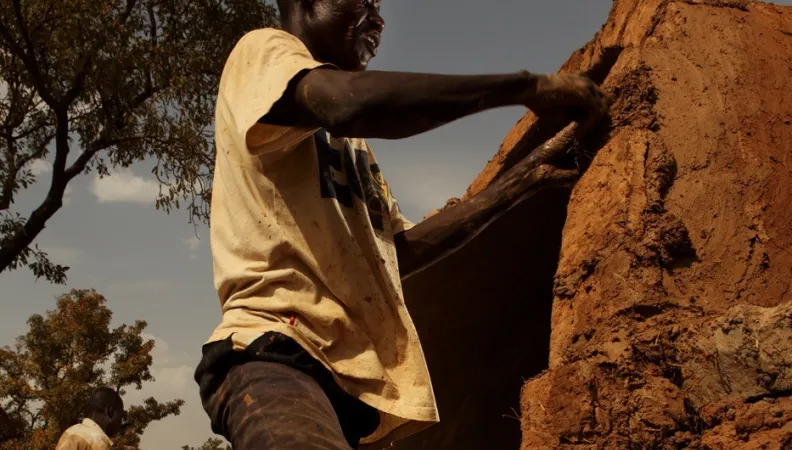Share the page
Program for the “fairtrade gold” sector and to reduce the use of mercury in gold mining in West Africa
Project


-
Project start date
-
Status
Completed
-
Estimated date of project termination
-
-
Project financing date
-
-
Financing duration
-
3 ans
-
Type of program
-
FFEM
-
Global financing amount
-
2582000 €
-
FFEM financing amount
-
900000 €
-
Project lead member institution(s)
-
Ministry for Europe and Foreign Affairs
-
Country and region
-
Burkina Faso
-
Location
-
Burkina Faso
-
Type of financing
-
Grant
-
Partners
-
Global Environment Facility (GEF), UNEP
-
Beneficiaries
-
ONUDI
-
Type of beneficiary
-
International organisation
Promoting the development of sustainable gold mining (environmental impact under control, contribution to local economic and social development) in the three participating countries, by transforming the gold mining sector into a sustainable, clean, efficient, income-generating, fair trade activity recognized by the governments of these States.
Context
In Africa, it is estimated that five million people carry out small-scale mining as a livelihood, half for gold mining, i.e. a minimum production of 50 tons a year. It is highly likely that these estimates have today been exceeded, due to the lasting impacts of the global economic crisis and, especially, the recent increase in gold prices. This activity creates wealth by maintaining populations in rural areas.
It directly contributes to local economies, often in an informal manner, and the vast majority of the substantial incomes generated remain in the country, unlike industrial operations.
However, this activity gives rise to a number of difficulties, both at the environmental and economic and social levels: unsound management of reserves, damage to the environment (mercury pollution in particular), overpopulation during “rushes”, as well as a number of other problems, such as out-of-school children and health risks.
Gold has recently become one of the fair trade raw materials. Indeed, in return for sustainable exploitation practices, respecting social, human and environmental rights and national laws on which fairtrade gold standards are based, a community can receive a certification from the organization managing this trade, FLO-Cert (FairTrade Labelling Organization). This certification allows gold panners to receive a higher remuneration for the gold extracted, which is partly paid for by advances on production forecasts.
Description
The project is based on 5 components:
- Management of the project and the selection methods for two gold panning communities per country, in order to assist them in the implementation of practices eligible for fair trade.
- Training in good exploitation and management practices. It is planned to give training to local NGO members of the project in the concepts, practices and methods to allow them to support gold panning communities.
- Addressing the problem of the dissemination of mercury at two levels: on the sites of pilot communities and at national level. It fits in with the UNEP Global Mercury Partnership. An assessment of mercury flows will be conducted at national level, before proposing an approach for the implementation of a national action plan for the fight against the dissemination of mercury. A series of workshops will be organized to train gold panners in good practices to protect themselves and the environment. Cleaner and more effective extraction methods will be introduced.
- Creation of “fairtrade gold” marketing channels. It comprises support to communities for procedures to obtain a “fairtrade gold certification” and the creation of a “fairtrade gold” marketing channel approved by governments and fair trade bodies.
- The communication aspects of the project.
Outcomes
- Economic and social: the project leads to an improvement in the effectiveness and economic sustainability of the gold mining activity, progress towards transparency in the activity, and improved social and health conditions (women’s work, schooling for children, increased incomes, reduction in exposure to mercury)
- Environmental: control of the risk related to the use of mercury, by effective techniques being taken on board to protect the environment and the health of communities, moving towards the eventual elimination of this use.


